PALM OIL 101 | An Introduction
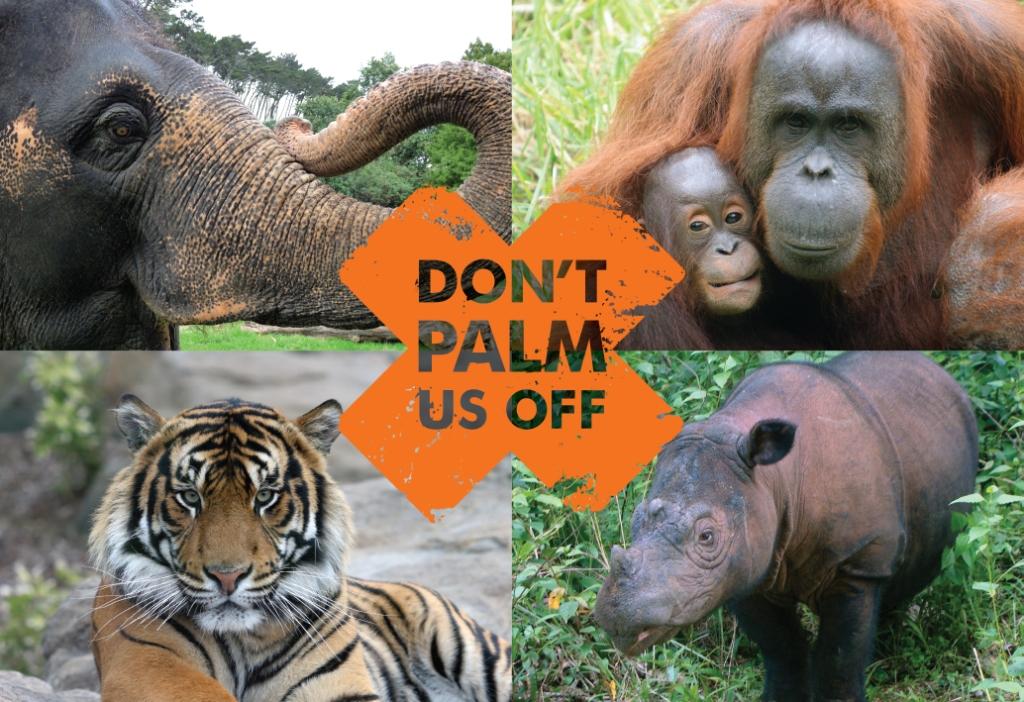
If I locked your family in one house… okay you don’t like your family… if I locked all your mates in the club… Don’t think much of them either?… OKAY. You’re dog… I’m gonna lock your dog in the kitchen… And then… I’m going to pop a message to a bunch of Murdered and sexual offenders… That I obviously have on speed dial… saying these guys are fair game, and then I just set fire to their homes. AND I SAID YOU CAN SAVE THEM IF YOU JUST STOP EATING DORTIOS… Would you do that? Would you do that for your dog?
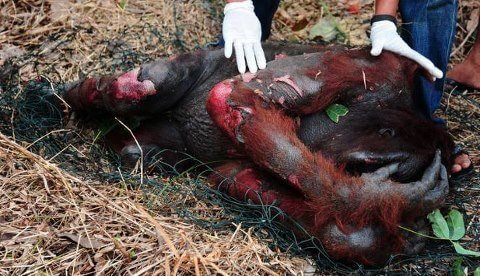
Then why do it to this guy?

WHAT IS PALM OIL?
Palm oil is a type of edible vegetable oil that is derived from the palm fruit, grown on the African oil palm tree. Oil palms are originally from Western Africa, but can flourish wherever heat and rainfall are abundant. Today, palm oil is grown throughout Africa, Asia, North America, and South America, with 85% of all palm oil globally produced and exported from Indonesia and Malaysia; but most of the time not using sustainable measures.
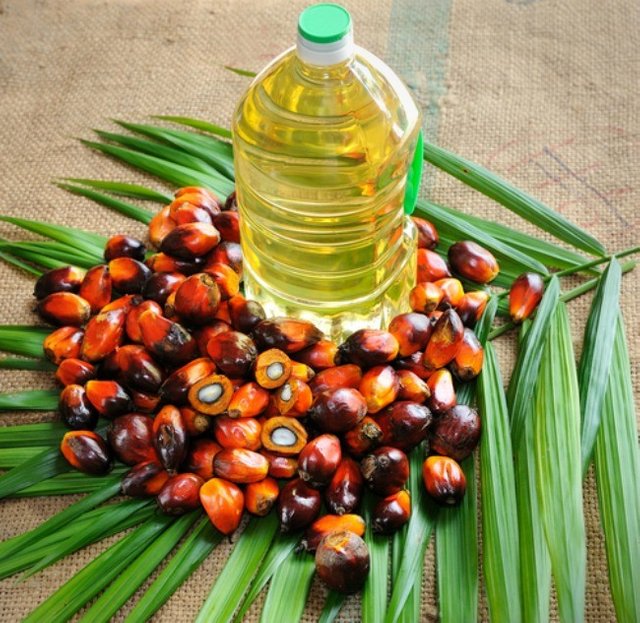
WHAT CONTAINS PALM OIL?
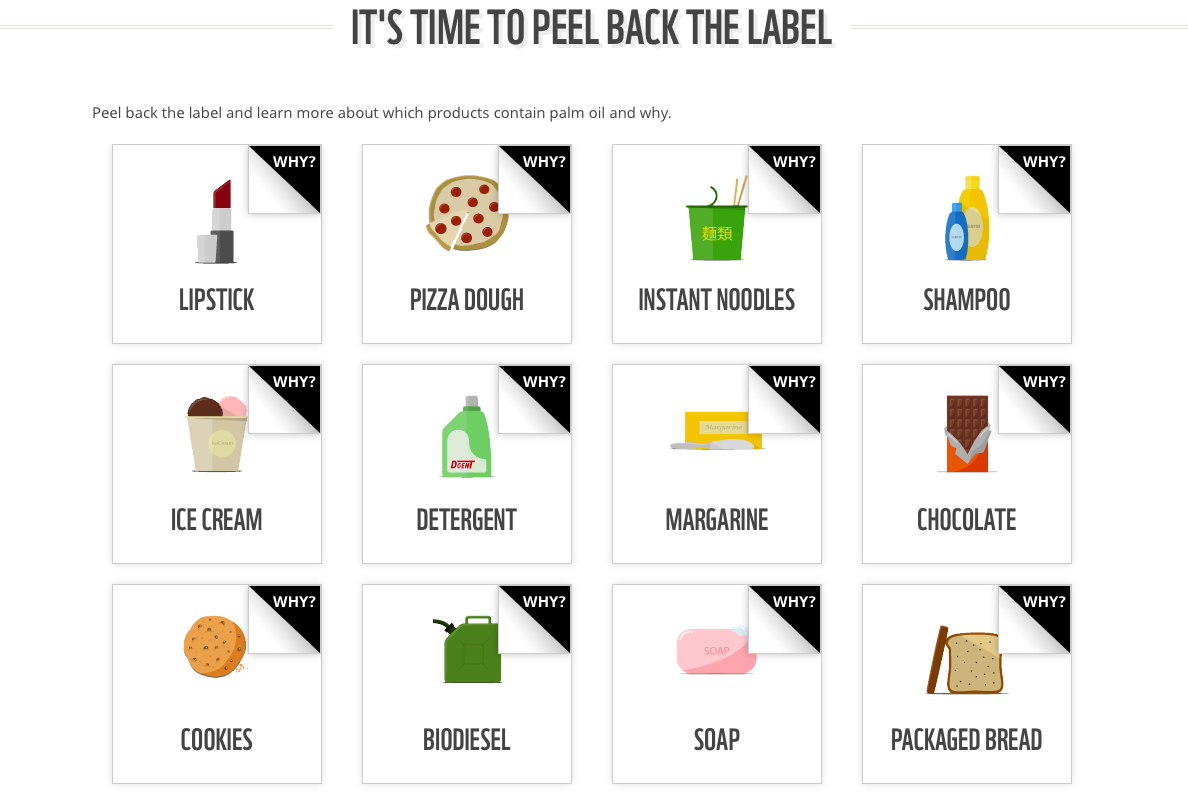

TO PEEL BACK THE LABEL https://www.worldwildlife.org/pages/which-everyday-products-contain-palm-oil
WHY IS PALM OIL USED?
(Extract from The Guardian, December 2014)
It was 1954 when the then-minister of food in Britain ended rationing and all food products became free-market commodities. According to Kurt Berger, a food technologist who formerly worked at major British food manufacturer J Lyons & Co, around that time research laboratories began experimenting with a new ingredient.
“One of our suppliers in Malaysia said there’s this new ingredient that’s good for frying as well as in pastries, cakes and ice cream,” Berger explains. “We tried [palm oil] out and found that not only was it technically useful, but also economically beneficial.”
Palm oil’s technical utility comes from its high melting point. Since palm oil is semi-solid at room temperature, it has a variety of uses from baking products and spreads to frying. Though animal fats also have this quality, they are far more expensive to produce.
The commodity’s cheap production cost stems from the fact that the palm plant essentially offers a two-for-one deal. Similar to a plum, both the fleshy outer part and inner stone provide usable oil (the latter referred to as palm kernel oil). The components can then be separated for different uses.
“Between the [flesh and the stone] the palm plant is about 10 times as productive as a plant like a soya bean or a rapeseed,” Berger says. “In a world that is short of food, having a plant that is as productive as that is a significant benefit.”
WHY AM I POSTING ABOUT IT?
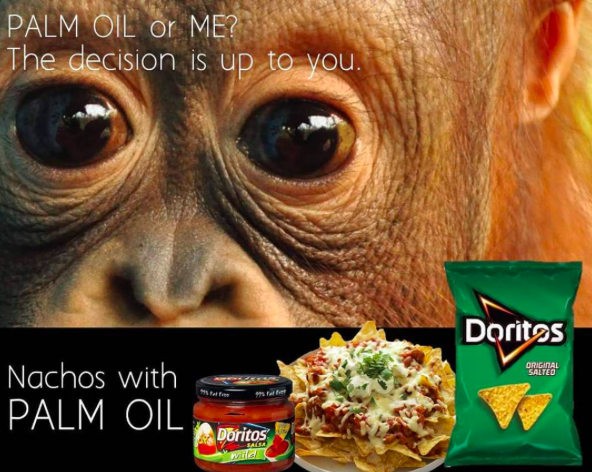
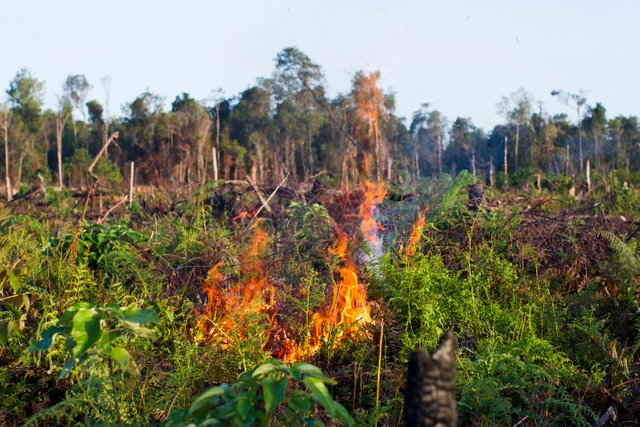

'If the Amazon rainforests are the lungs of the Earth, the Leuser is its heart,' says conservationist
Leuser ecosystem in northern Sumatra, Indonesia – the last place on Earth where tigers, orangutans, rhinoceros and elephants still live alongside one another.
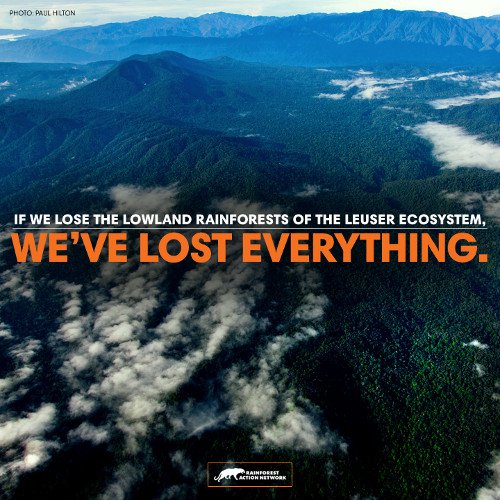

IMPACT
A large proportion of palm oil expansion occurs at the expense of biodiversity and ecosystems in the countries it is produced. Currently, a third of all mammal species in Indonesia are considered to be critically endangered as a consequence of this unsustainable development that is rapidly encroaching on their habitat.
One animal of particular importance according to conservationists is the orangutan, which has become a charismatic icon for deforestation in Borneo and Sumatra. Over 90% of orangutan habitat has been destroyed in the last 20 years, and as such, is considered “a conservation emergency” by the UN. An estimated 1000-5000 orangutans are killed each year for this development. The orangutan is a keystone species and plays a vital role in maintaining the health of the ecosystem. An example of this being the spread of rainforest seeds in Indonesia, many of which can only germinate once passed through the gut of an orangutan, hence this primate is essential for the existence of the forest. But the orangutan is not the only species affected by palm oil development; their situation represents the story of thousands of other species facing the same fate in South-East Asia.
Deforestation for palm oil production also contributes significantly to climate change. The removal of the native forests often involves the burning of invaluable timber and remaining forest undergrowth, emitting immense quantities of smoke into the atmosphere and making Indonesia the third highest greenhouse gas emitter in the world.
There are over 300,000 different animals found throughout the jungles of Borneo and Sumatra, many of which are injured, killed and displaced during deforestation. In addition, palm oil development increases accessibility of animals to poachers and wildlife smugglers who capture and sell wildlife as pets, use them for medicinal purposes or kill them for their body parts. The destruction of rainforests in Borneo and Sumatra is therefore not only a conservation emergency, but a major animal welfare crisis as well.
Wildlife such as orangutans have been found buried alive, killed from machete attacks, guns and other weaponry. Government data has shown that over 50,000 orangutans have already died as a result of deforestation due to palm oil in the last two decades. This either occurs during the deforestation process, or after the animal enters a village or existing palm oil plantation in search of food. Mother orangutans are also often killed by poachers and have their babies taken to be sold or kept as pets, or used for entertainment in wildlife tourism parks in countries such as Thailand and Bali.
Other megafauna that suffer as a result of this development include species like the Sumatran Tiger, Sumatran Rhinoceros, Sun Bear, Pygmy Elephant, Clouded Leopard and Proboscis Monkey. Road networks that are constructed to allow palm oil plantation workers and equipment access to the forest also increase accessibility of these areas to poachers that are looking for these kinds of valuable animals. This allows poachers to comfortably drive to an area to sit and wait for their target where previously they may have had to trek through inaccessible areas of forest.
WHERE WE ARE AT
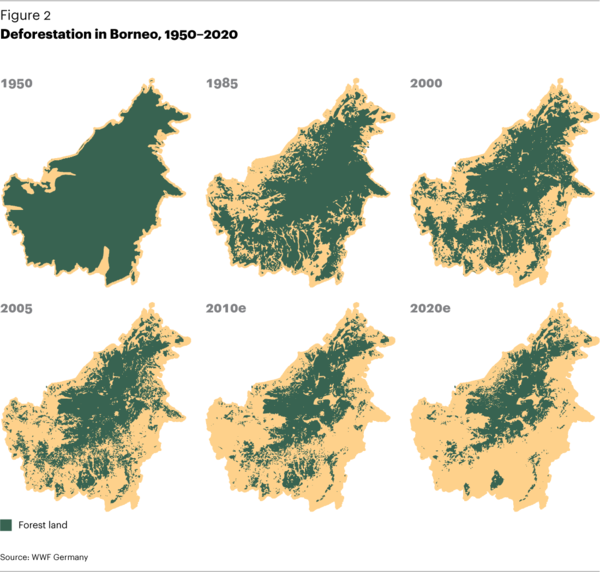
WHAT IS DEFORESTATION?
Deforestation, clearance or clearing is the removal of a forest or stand of trees where the land is thereafter converted to a non-forest use.[2] Examples of deforestation include conversion of forestland to farms, ranches, or urban use. The most concentrated deforestation occurs in tropical rainforests.[3] About 30% of Earth's land surface is covered by forests.[4]
HOW PALM OIL IS FARMED?
To produce palm oil in large enough quantities to meet growing demand, farmers across Southeast Asia have been clearing huge swaths of biodiversity-rich tropical rainforest to make room for massive palm plantations. Today palm oil production is the largest cause of deforestation in Indonesia and other equatorial countries with dwindling expanses of tropical rainforest. Indonesia’s endangered orangutan population, which depends upon the rainforest, has dwindled by as much as 50 percent in recent years.
The clearing of these forests is a big factor in global warming, given how much carbon dioxide (CO2) trees store when left alone. Once forests are cut, tons of CO2 heads skyward where it does the most harm. Also, when not replaced by palm oil plantations, rainforests help maintain water resources by absorbing rainfall and then releasing it into streams and rivers, thus minimizing flooding and soil depletion.According to the World Wildlife Fund, an area the equivalent size of 300 football fields of rainforest is cleared each hour to make way for palm oil production. This large-scale deforestation is pushing many species to extinction, and findings show that if nothing changes species like the orangutan could become extinct in the wild within the next 5-10 years, and Sumatran tigers less than 3 years
Palm Oil Production, corners off and burns down forests to the ground. Before the fires are started, tracks are laid, making it easier for poachers to get in to the area… After that, the blaze starts and the animals that haven’t been “evicted” must run for their lives.
“right now, only 6.4% of palm oil is farmed sustainably. That means orangutans like this one are still in danger because people like us love buying instant noodles and pizza and margarine. And that's upsetting.” – UpWorthy May, 2015.
SUPPORT SUSTAINABLE PALM OIL
Sustainable palm oil is an approach to oil palm agriculture that aims to produce palm oil without causing deforestation or harming people.
Sustainable palm oil has been under fire for several years from environmentalists and organisations who feel it is nothing more than a greenwashing scheme. This view did not improve within the environmental community upon the formation of the RSPO (Roundtable on Sustainable Palm Oil) in 2004, but many feel that this widely accepted certification scheme has the potential to prevent deforestation in the industry.
The RSPO is a not-for-profit organisation that aims to unite stakeholders form all sectors of the palm oil industry, including environmental and social NGOs. RSPO is currently the largest sustainability-focused organisation within the palm oil sector, however its standards do not ban deforestation or destruction of peatlands for the development of oil palm plantations.
PEOPLE TO FOLLOW ON INSTAGRAM:
Paul Hilton photo journalist - http://www.paulhiltonphotography.com
http://www.palmoilinvestigations.org
http://www.onegreenplanet.org/animalsandnature/top-10-facts-you-need-to-know-about-palm-oil/
DOWNLOAD THE APP: https://itunes.apple.com/gb/app/sustainable-palm-oil-shopping/id671945416?mt=8


I love monkeys!